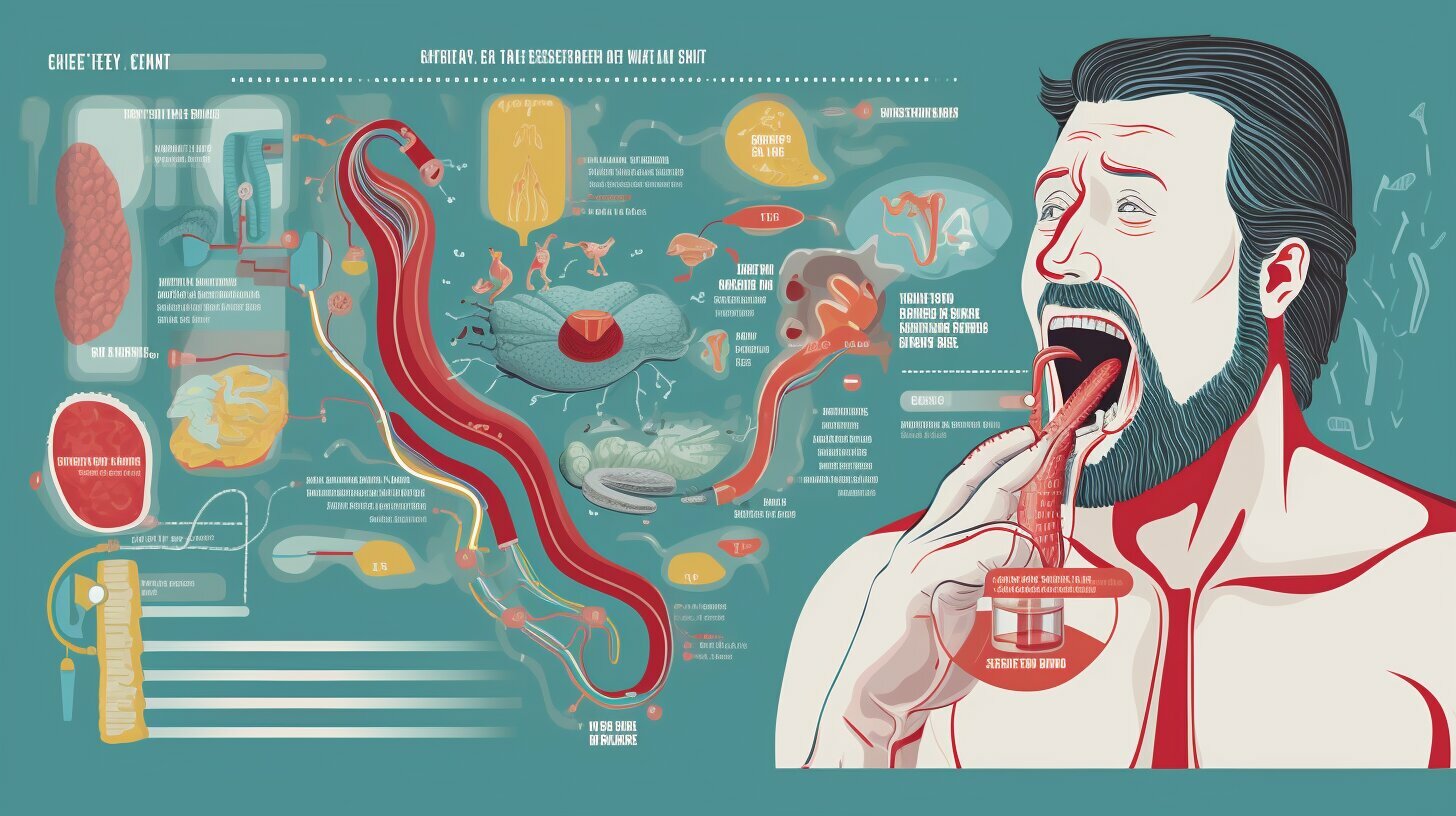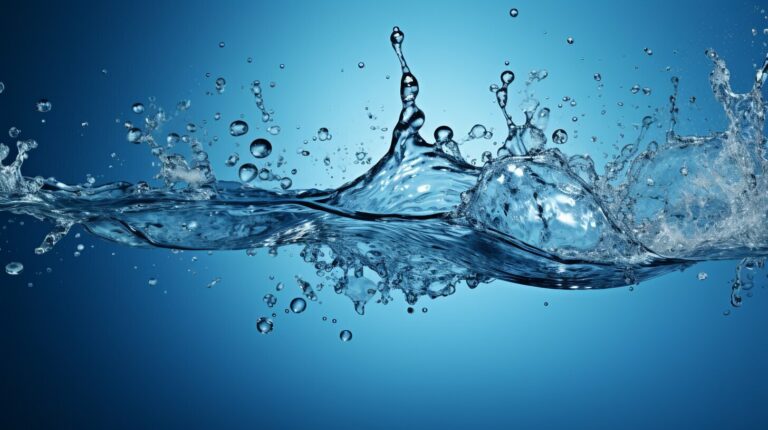Ouch! Unraveling Why It Hurts to Drink Water – Find Out Here.
Have you ever wondered why it can be painful to drink water? It’s a common experience that can leave you feeling puzzled and uncomfortable. But fear not, because in this article, I’ll dive into the reasons behind this phenomenon and help you find relief from the sting of drinking water.
Key Takeaways
- Drinking water is essential for maintaining overall health and bodily functions.
- Dehydration and dryness can contribute to the discomfort experienced when drinking water.
- Sensitivities and allergies to substances in water, such as chlorine or minerals, can trigger reactions and cause pain.
- Acid reflux can lead to irritation of the esophagus, resulting in discomfort while drinking water.
- Practical solutions and tips can help alleviate water-related discomfort and ensure a pleasurable hydration experience.
The Culprits Behind Drinking Water Discomfort
Let’s explore the culprits that can turn a refreshing gulp of water into a painful experience. It’s no secret that water is essential for our overall health and well-being. However, there are times when drinking water can leave us with an unpleasant sensation, causing discomfort in our throats. So, what could be causing this discomfort?
One of the main culprits behind water-related discomfort is the temperature of the water itself. Drinking extremely cold or hot water can irritate the delicate lining of our throats, leading to pain and soreness. This is especially true if you have a sensitive throat or suffer from conditions like acid reflux. So, it’s important to find a balance and drink water at a moderate temperature to avoid unnecessary discomfort.
Another culprit that often goes unnoticed is the quality of the water we consume. Depending on the source and treatment process, tap water can contain chlorine, minerals, or other substances that may cause irritation in some individuals. If you find that your throat is often irritated after drinking tap water, it may be worth considering a filtration system or opting for bottled water to alleviate the discomfort.
Sometimes, the culprit isn’t the water itself, but rather our own bodies. Dehydration can play a significant role in causing discomfort while drinking water. When we’re dehydrated, our throat and mouth may become dry, making it harder for the water to pass smoothly. This can result in a painful sensation or even the feeling of the water getting “stuck” in our throat. Staying hydrated throughout the day is vital to prevent this discomfort and ensure a pleasant drinking experience.
The Culprits Behind Drinking Water Discomfort
| Culprit | Description |
|---|---|
| Temperature | Drinking extremely cold or hot water can irritate the throat, causing pain and soreness. |
| Water Quality | Tap water may contain substances such as chlorine or minerals that can cause throat irritation. Consider using a filtration system or opting for bottled water. |
| Dehydration | When dehydrated, the throat and mouth can become dry, making it harder for water to pass smoothly and resulting in discomfort. |
By understanding these culprits, we can take proactive steps to minimize water-related discomfort. Opting for water at a moderate temperature, improving water quality, and staying hydrated are key strategies for a pain-free and enjoyable drinking experience. Remember, water should nourish and replenish our bodies, not cause discomfort!
Dehydration and Dryness: Thirsty for Answers
Could dehydration and dryness be the main contributors to the pain you feel when drinking water? It’s a valid question to consider. When our bodies are lacking in fluids, it can lead to a range of discomforts, including irritation and soreness while consuming water.
Staying hydrated is crucial for maintaining overall health and bodily functions. Water helps to balance body fluids, energize muscles, support kidney function, and keep our skin looking good. But what happens when the very act of drinking water becomes uncomfortable?
One possible explanation is dehydration. When we don’t drink enough water, our bodies become thirsty, and the throat may become dry and sensitive. The lack of moisture can make swallowing even water a painful experience. Additionally, dryness in the throat can lead to irritation and soreness, making it uncomfortable to consume any liquids, including water.
Another factor to consider is the environmental conditions you’re exposed to. Dry air, whether due to weather or indoor heating/air conditioning, can worsen dehydration and dryness in the throat. So, if you find yourself in a dry environment or experiencing symptoms of dehydration, it’s essential to increase your fluid intake and consider using a humidifier to add moisture to the air.
| Common Symptoms of Dehydration: | Ways to Relieve Dehydration: |
|---|---|
|
|
Remember, staying adequately hydrated is crucial for overall well-being. If you experience pain or discomfort while drinking water, dehydration and dryness could be the culprits. Make sure to drink enough fluids throughout the day, especially water, and consider addressing any underlying factors such as dry air or low humidity. By taking steps to stay hydrated, you can enjoy your sips without the sting.
Stay Hydrated, Stay Healthy!
Sensitivity Strikes: Uncovering Sensitivities and Allergies
Is it possible that your body is sensitive to certain elements present in water, leading to the discomfort you feel? It might be time to explore the idea that sensitivity or allergies are the culprit behind your painful drinking experiences. Water, which is essential for our well-being, can sometimes cause unexpected reactions in sensitive individuals.
When it comes to water, there are various substances that can trigger sensitivities or allergies. Chlorine, commonly used to disinfect water, can be a potential offender. Some individuals may find themselves experiencing discomfort, such as a burning sensation, when chlorine comes in contact with their throat or digestive system.
Additionally, minerals present in water, such as calcium or magnesium, can also lead to sensitivities in certain people. These minerals, while generally safe for consumption, can cause irritation or inflammation in the throat or gastrointestinal tract, resulting in pain or soreness when drinking water.
To address water-related discomfort caused by sensitivities or allergies, there are strategies you can try. One option is to explore alternative water sources, such as bottled or filtered water, to reduce exposure to potential irritants. You can also consider using a water purifier or filter at home to remove chlorine and other impurities.
| Possible Sensitivities or Allergies | Remedies |
|---|---|
| Chlorine sensitivity | Using bottled or filtered water |
| Mineral sensitivity | Exploring alternative water sources or using water filters |
Remember, it’s essential to listen to your body and pay attention to any discomfort you may experience while drinking water. By uncovering and addressing potential sensitivities or allergies, you can find relief and enjoy your hydration routine without pain or discomfort.
Acid Reflux: The Hidden Culprit
Could acid reflux be the sneaky culprit behind the pain you experience while drinking water? As strange as it may sound, this common condition can cause discomfort and soreness when consuming fluids. Acid reflux occurs when stomach acid travels back up into the esophagus, causing irritation and inflammation.
“It’s like a little volcano erupting in your throat,” says Dr. Rebecca Johnson, a gastroenterologist.
For individuals with acid reflux, water can aggravate the already irritated esophagus, leading to a burning sensation or discomfort while swallowing. This can be especially noticeable when drinking water, as the liquid can further irritate the sensitive lining of the esophagus.
To manage acid reflux and reduce water-related discomfort, there are several strategies you can try:
- Avoid lying down or bending over immediately after drinking water.
- Take small sips of water instead of gulping it down.
- Drink water at room temperature or slightly warm, as extreme temperatures can trigger reflux symptoms.
- Consider using a straw to help direct the water towards the back of the throat, bypassing the sensitive esophagus.
Seek Medical Advice
If you experience persistent pain or discomfort while drinking water, it’s essential to consult with a healthcare professional. They can help diagnose and treat any underlying conditions that may be contributing to your symptoms.
| Key Takeaways: |
|---|
| Acid reflux can be a cause of pain and discomfort while drinking water. |
| Take small sips, avoid lying down after drinking, and consider using a straw to help alleviate symptoms. |
| If symptoms persist, seek medical advice for proper diagnosis and treatment. |
Seeking Solutions: Tips for Relieving Water-Related Discomfort
Ready to find relief from the discomfort that accompanies drinking water? Check out these witty and practical tips and strategies to ensure a refreshing and pain-free hydration experience.
1. Hydration Techniques
When it comes to staying hydrated, it’s not just about the quantity of water you drink, but also how you drink it. Try these techniques to minimize water-related discomfort:
- Take small sips: Instead of gulping down large amounts of water at once, take smaller sips to ease the pressure on your throat.
- Use a straw: Drinking through a straw can help bypass your sensitive throat and reduce direct contact with the water.
- Alternate with other fluids: If plain water causes discomfort, try alternating with herbal tea, lemon water, or diluted fruit juices to add flavor and reduce irritation.
2. Proper Drinking Habits
Developing good drinking habits can go a long way in minimizing discomfort. Consider the following:
- Stay upright while drinking: Drinking water while hunched over or lying down can increase the chances of irritation and discomfort. Maintain an upright posture to allow water to flow smoothly down your throat.
- Avoid extreme temperatures: Drinking very cold or hot water can irritate the throat. Opt for room temperature or slightly warm water to reduce discomfort.
- Give it time: If you experience temporary discomfort while drinking water, allow for a brief pause before taking another sip. This can give your throat a chance to recover.
3. Soothing Remedies
If you still find yourself experiencing discomfort while drinking water, try these soothing remedies:
- Sip warm honey water: Mix a tablespoon of honey in warm water and slowly sip on it. Honey can help soothe and coat the throat, providing relief from irritation.
- Try throat lozenges: Dissolvable throat lozenges can provide temporary relief by numbing the throat and reducing pain while drinking water.
- Stay hydrated with hydrating foods: Incorporate hydrating foods such as watermelon, cucumbers, and citrus fruits into your diet. These foods can provide additional hydration and mitigate discomfort.
Remember, if you continue to experience persistent or severe pain while drinking water, it’s important to consult a healthcare professional. They can help identify any underlying medical conditions and provide appropriate guidance for your specific situation. Stay hydrated, stay comfortable!
| Solution | Benefits |
|---|---|
| Hydration Techniques | – Minimizes pressure on the throat – Reduces direct contact with water |
| Proper Drinking Habits | – Maintains upright posture for smooth water flow – Avoids extreme temperatures |
| Soothing Remedies | – Coats and soothes the throat with warm honey water – Numbs the throat with throat lozenges |
Conclusion
Understanding the reasons behind water-related discomfort is the first step towards finding relief and enjoying your sips without any pain or soreness. As we explored in this article, there can be various causes for the discomfort experienced when drinking water, including dehydration and dryness, sensitivities and allergies, and even acid reflux.
When it comes to hydration, it’s important to listen to your body’s cues for thirst and ensure you are consuming enough fluids throughout the day. While the old guideline of drinking eight glasses of water a day may have been oversold, staying hydrated is still crucial for maintaining overall health and bodily functions.
If you experience pain or soreness while drinking water, there are remedies and strategies you can try to alleviate the discomfort. Hydration techniques, proper drinking habits, and throat-soothing remedies can all help in making your hydration experience more pleasurable.
Remember, water discomfort should not be ignored. By identifying the underlying causes and implementing suitable solutions, you can ensure a pain-free and enjoyable hydration experience. So, drink up and quench your thirst while keeping water-related discomfort at bay!
FAQ
Why does it hurt to drink water?
Drinking water can cause discomfort for various reasons. It could be due to dehydration and dryness, sensitivities or allergies to substances in water, acid reflux, or other underlying issues. Understanding the cause of your discomfort can help you find relief.
What are the potential causes of pain and soreness when drinking water?
The discomfort experienced when drinking water can be caused by factors such as dehydration and dryness, sensitivities or allergies to substances in water, acid reflux, or other underlying conditions. Identifying the root cause can help in finding appropriate solutions.
How can dehydration and dryness contribute to pain during water consumption?
When your body is dehydrated or your throat is dry, drinking water can irritate the throat and cause pain. Proper hydration and taking measures to combat dryness can help alleviate this discomfort.
Can sensitivities and allergies to certain substances in water cause pain and discomfort?
Yes, some individuals may have sensitivities or allergies to substances like chlorine or minerals in water, which can lead to discomfort when drinking. Taking steps to address these sensitivities, such as using filtered water or alternatives, can help reduce the discomfort.
What is the connection between acid reflux and pain while drinking water?
Acid reflux occurs when stomach acid flows back into the esophagus, causing irritation and pain. This can be exacerbated by drinking water, as it can further irritate the already sensitive esophagus. Managing acid reflux through lifestyle changes and medication can help alleviate water-related discomfort.
Are there any tips for relieving water-related discomfort?
Yes! Some tips for alleviating discomfort when drinking water include staying hydrated, practicing proper drinking habits (like sipping instead of gulping), using remedies like warm water or herbal teas, and consulting a healthcare professional for further guidance.
How should I address and manage water discomfort?
It’s important not to ignore water-related discomfort. Understanding the cause of your discomfort, staying hydrated, and following the tips provided can help you address and manage the issue. If the discomfort persists or worsens, it’s advisable to seek medical advice.
What’s the key takeaway for dealing with water discomfort?
The key takeaway is to prioritize staying hydrated while addressing any discomfort that arises. Pain while drinking water shouldn’t be ignored, and by identifying the cause and implementing appropriate solutions, you can ensure a pleasurable and healthy hydration experience.






